India’s artisan community, numbering over 200 million, surpasses the population of all but six countries worldwide. This vast republic of artisans constitutes a pillar of India’s cultural and economic heritage, enriching traditions through diverse crafts and practices. The handloom industry, with 23.77 lakh looms and employing 3,522,512 workers, predominantly women, underscores its significance as the largest cottage industry. Valued at Rs 24,300 crores, Indian handicrafts contribute 14% to industrial production, 4% to GDP, and 13% to export earnings, with fabrics like ikat driving global appeal. Across 470 clusters in states such as Uttar Pradesh, Tamil Nadu, Orissa, and West Bengal, these artisans weave intricate narratives into every piece. The sector supports 68.86 lakh artisans, striving amidst challenges like access to working capital. Despite hurdles, the Indian handicrafts market, valued at US$ 3,968.0 million in 2022, is projected to grow to US$ 5,583.9 million by 2028, affirming its resilience and potential. As India’s art and craft market expands, its artisans remain the custodians of a vibrant cultural legacy poised for global appreciation, driving towards an estimated value of 19 billion rupees by fiscal year 2028. This is why Digital Empowerment Foundation, Digikargha and Creative Dignity launched the Digital Artisans of India Award in 2023- to bring the voices of artisans to the forefront, showcasing their craft and emphasizing the critical role of digital tools and mediums in preserving and promoting these historical traditions.
The award ceremony was held on 6th July, 2024 at National Crafts Museum and Hastkala Academy in New Delhi. With more than 50 artisans from across the country, the day hosted various workshops and hackathons with experts from the field, an exhibition and showcasing of the artisans’ crafts, and the award ceremony.
The day started with an open mic session where the artisans were encouraged to share their stories, the stories of their crafts, their community and contexts, their challenges, and their digital journeys with the organizers, guests, and each other as creative practitioners. The artisans spoke of their diverse crafts, the challenges that they have faced to preserve their traditional art forms, and how weaving clusters can benefit from digital development since it connects them to global marketplaces, enhances their craft skills, and enables them to get the correct information and services necessary to strengthen their ecosystem.
The second part of the day started with workshops and hackathons from experts in the field. Attending workshops on various topics has proven to be incredibly beneficial for artisans and weavers. One such workshop, “Leveraging Different Digital Media & Finding the Right Match for Your Brand” by CraftVillage, provided invaluable insights into how different digital platforms can enhance brand visibility with varied audiences.
In another session, “Trends in the Handmade Production and Consumption” by Kirti Goel of PTal, the discussions highlighted shifting consumer preferences. This guided artisans on how to adapt their techniques and products to meet market demands, ensuring their creations remain relevant and desirable and fit into the daily lives of their consumers.
Natasha Badhwar’s workshop on “Digital Storytelling in Craftsmanship” empowered artisans to narrate the real and unique stories behind their creations. This added emotional value and strengthened customer connections, making their work more appealing and memorable.
Mouhamed Moustapha’s “SnapSutra: Click and Enhance” offered practical skills in digital photography. This was essential for artisans to showcase their work online, improving the visual appeal of their products and attracting potential buyers.
Lastly, Madan Meena’s “Archiving Traditional Knowledge in the Digital Age” underscored the importance of preserving cultural heritage through digital means. This session highlighted how traditional craftsmanship could be retained and celebrated in the modern world.
These workshops collectively equipped artisans and weavers with the knowledge and tools necessary to thrive in the contemporary digital landscape.
The Digital Artisans of India Award ceremony concluded with a captivating cultural performance by Mamta Sapera and her group. Rajasthan’s folk music, traditionally dictated by gender roles that restricted women from dancing and singing, witnessed a powerful revolution on stage. Mamta Sapera, a 20-year-old musical prodigy, broke down these barriers with her exceptional talent and passion for playing instruments typically reserved for men. Her performance, featuring the Khartal, Bhapang, and Morchang, defied conventions and challenged stereotypes, inspiring the audience with her dedication to preserving and transforming Rajasthan’s musical heritage.
The day culminated with the Digital Artisans of India Award 2023-24 Award Ceremony. The induction was given by Dr. Sudha Dhingra (Dean- Academics, National Institute of Fashion Technology, Delhi) and Dr. Swapna Mishra (Officiating CEO- Textile Sector Skill Council, India). Dr. Sudha and Dr. Swapna welcomed and addressed the artisans at the Digital Artisans of India Award. Dr. Dhingra expressed deep admiration for the artisans’ unwavering dedication to preserving traditional arts and crafts, and their enthusiastic embrace of digital integration into their work. She also told the artisans about a special scheme offering a few seats at NIFT campuses for artisans or their children, further supporting their educational aspirations. Dr. Mishra highlighted the Textile Sector Skill Council’s ongoing initiatives to incorporate more artisans into their programs, emphasizing their efforts to bridge the gap between industry and academia through specialized design courses and collaborative projects, thereby enhancing the artisans’ skills and opportunities in the evolving textile sector.
Experts from the field of artisans development presided over the ceremony and presented more than 30 artisans from across the country, each with their own diverse craft and their own story of preservation of their craft through digital, won cash prizes of up to 11 lakh rupees and 1 year mentorship opportunities with the host organizations, Digital Empowerment Foundation and Creative Dignity. The award ceremony culminated with the launch of ‘Kargha Tales’, a reader’s digest of the stories of these artisans and their tales of empowerment.

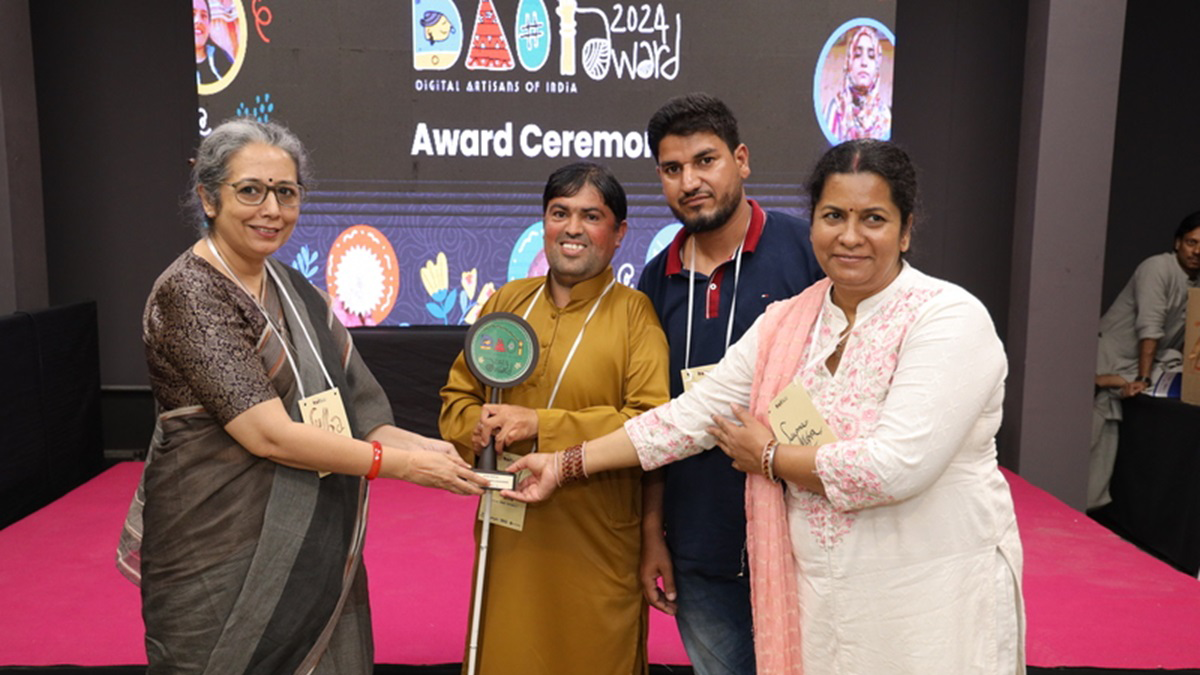
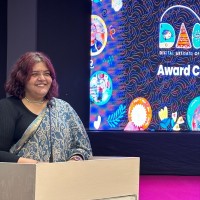
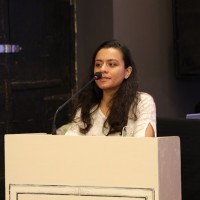
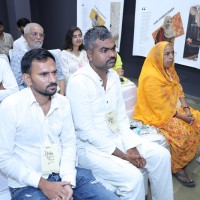
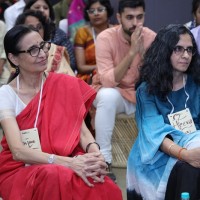
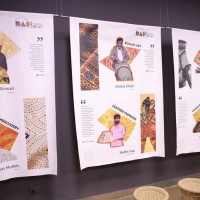
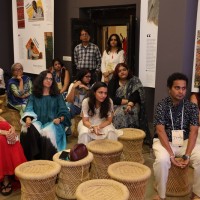
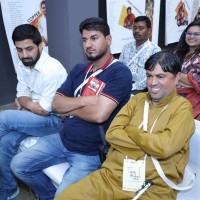
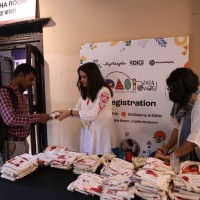
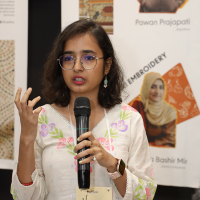
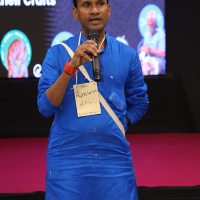
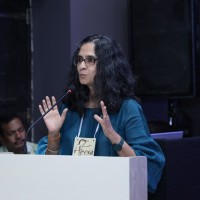
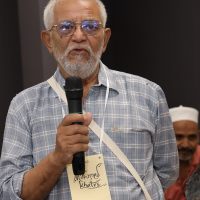
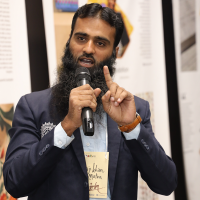
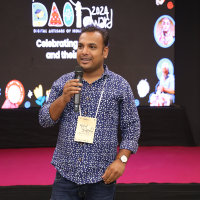
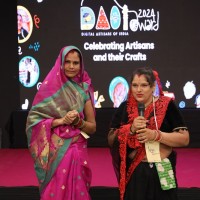
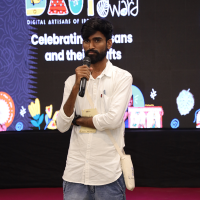
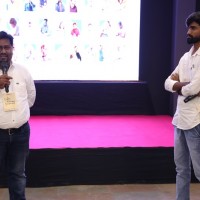
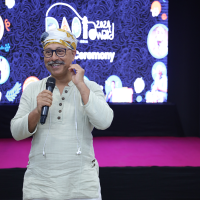
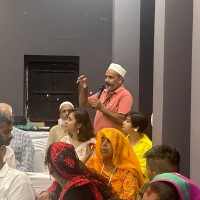
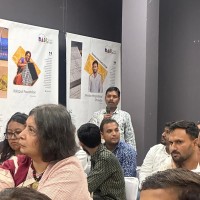
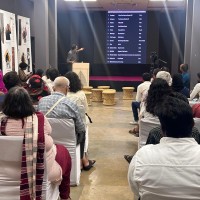
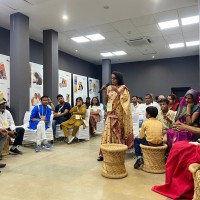
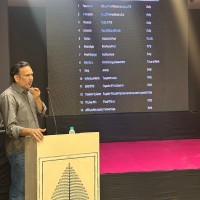
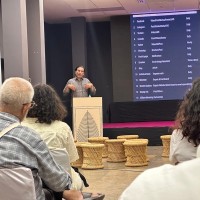
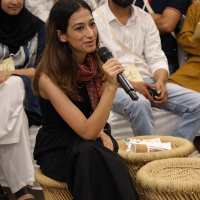
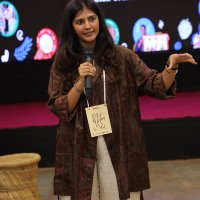
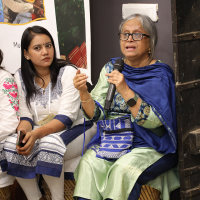
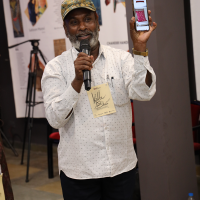
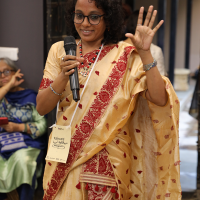
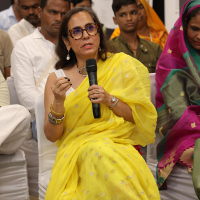
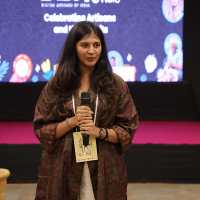
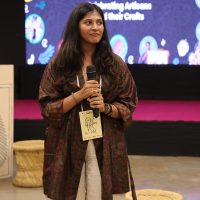
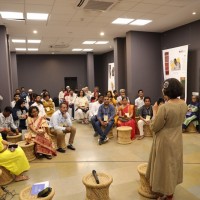
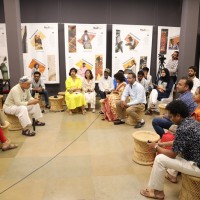
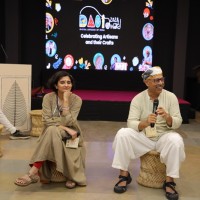
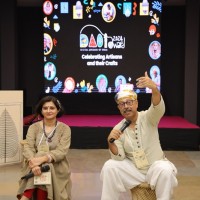
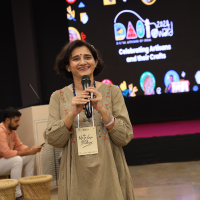
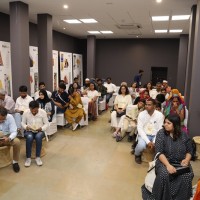
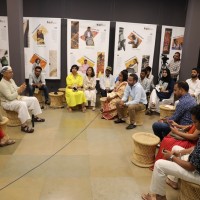
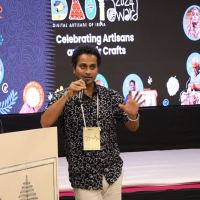
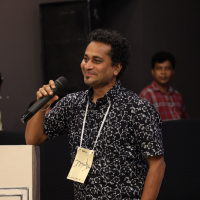
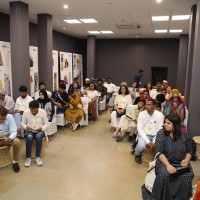
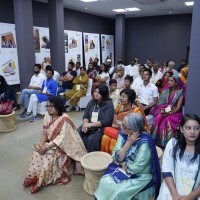
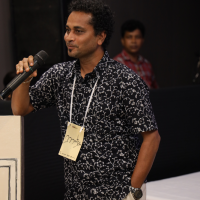
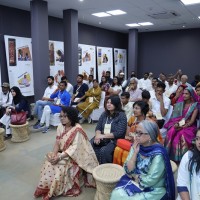
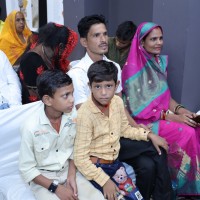
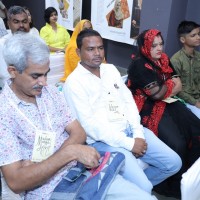
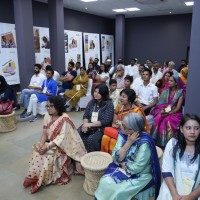
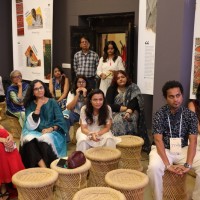
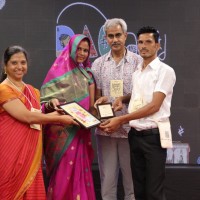
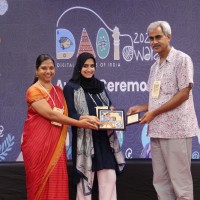
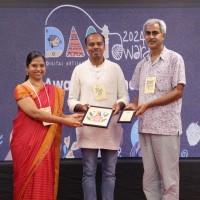
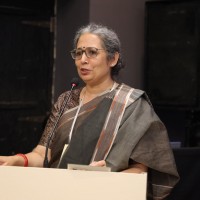
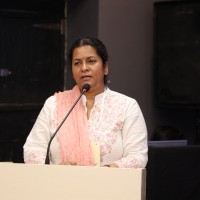
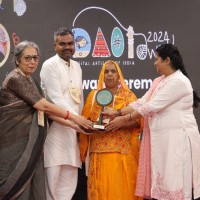
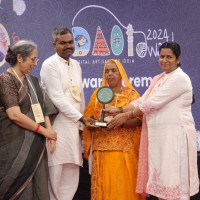
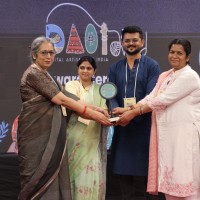
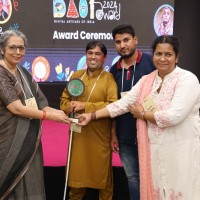
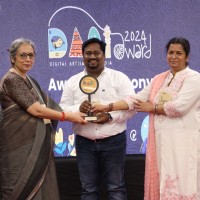
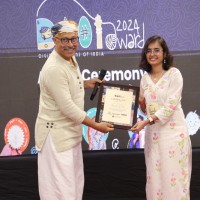
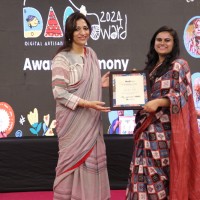
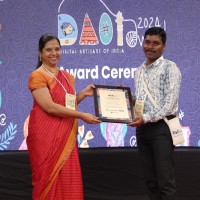
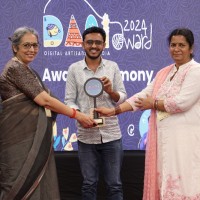
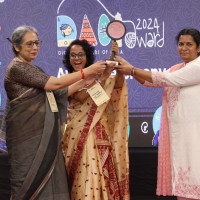
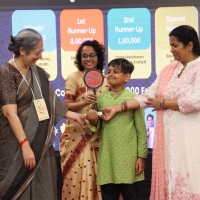
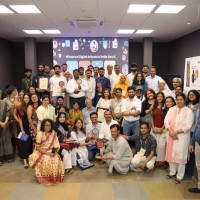
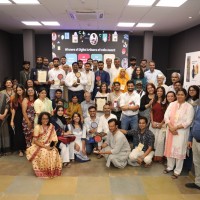
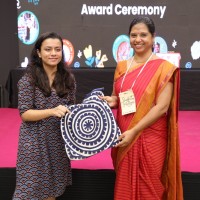
Leave feedback about this